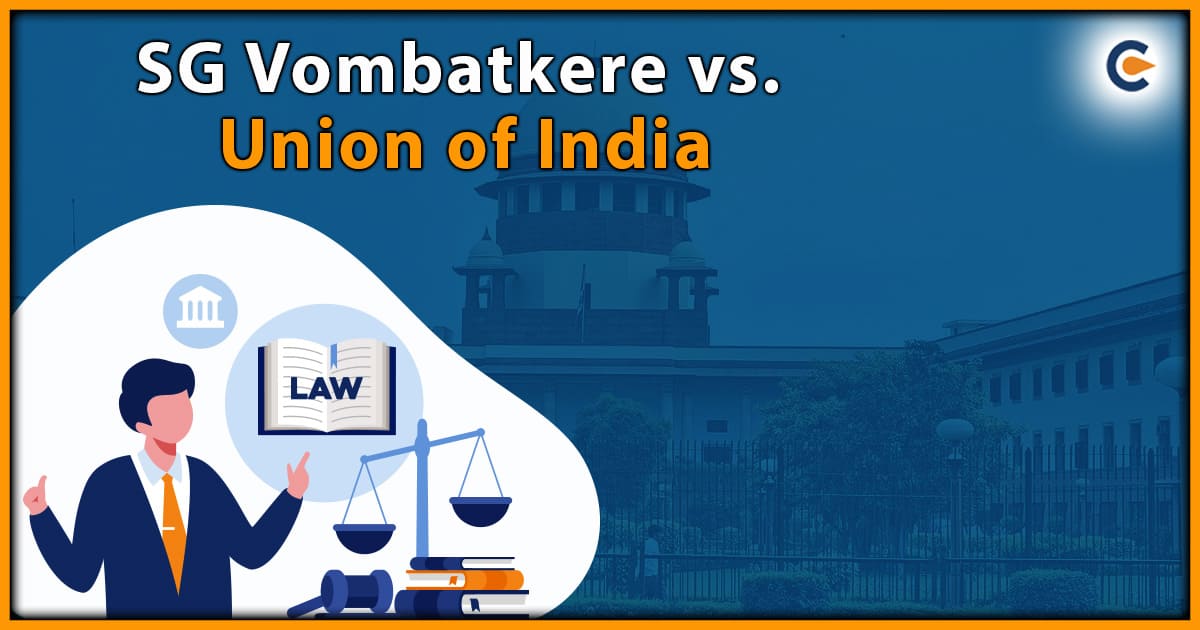Marriage is considered a sacrament in Indian culture. A husband and wife are bound in an unbreakable bond through rituals and traditions. The legal framework for seeking a divorce and legal separation is set down in the Hindu Marriage Act of 1955. While Divorce is a legal dissolution of the marriage, judicial separation suspends marital obligations and rights without doing so. While Divorce’s primary goal is to end the couple’s obligations as a married couple, judicial separation aims to examine the possibility of the couple reconciling.
Judicial Separation
It is a legal process through which a married couple can live separately from each other without obtaining a divorce. The Special Marriage Act[1] and The Hindu Marriage Act the primary legislation governing marriage issues in India, regulate judicial separation. A court of law may grant judicial separation, typically for cruelty, desertion, adultery, or mental illness. The couple is no longer obligated to live together after a judicial separation has been granted, but they are still legally married and cannot be remarried.
Grounds for Judicial Separation
- Adultery:
One spouse cheated on the other.
- Cruelty:
One spouse has treated the other spouse cruelly, either physically or mentally.
- Desertion:
For a constant period of at least two years, one spouse has abandoned the other.
- Mental Disease:
The continuation of the marriage is complicated by one spouse’s presence of a mental disorder or another incurable sickness.
- Mutual Consent:
Both partners mutually agree to separate but keep their marriage intact.
It’s necessary to remember that the requirements for getting a divorce and a legal separation coincide. The main distinction is that a divorce ends the marital relationship, but a legal separation only partially dissolves a marriage.
Divorce
Divorce is a legitimate process that terminates a marital relationship between two individuals. A married couple can end their marriage and their legal responsibilities to one another through a legal process. Both parties are free to be remarried after a divorce has been granted. Divorce proceedings begin with filing a divorce petition in court, followed by a formal legal procedure that may include discussions, mediations, and court appearances. The court may make decisions during the process about things like child custody, visitation privileges, and financial support.
Grounds for Divorce
- Adultery:
One spouse cheated on the other.
- Cruelty:
One spouse has oppressed the other spouse, either physically or mentally.
- Desertion:
For a constant period of at least two years, one spouse has abandoned the other.
- Conversion:
One spouse has converted to the religion they were married under and became a follower of another religion.
- Mental Disease:
The continuation of the marriage is complicated by one spouse’s suffering from a mental disorder or other incurable disease.
- Unsoundness of Mind:
One spouse cannot legally commit to marriage due to their state of mind.
- Mutual Consent:
Both partners voluntarily choose to end their marriage.
- Irretrievable Breakdown of the Marriage:
The Marriage Laws (Amendment) Act 2019 added this ground, which enables a party to file for Divorce if the marriage has irretrievably dissolved and it is impossible to maintain the relationship.
- Renunciation:
One spouse has renounced the world and entered into a religious order.
- No Resumption of Cohabitation:
The parties have lived apart for not less than one year, and there is no chance of resuming cohabitation.
Divorce and Legal Separation Have Different Characteristics
Divorce terminates the marriage, whereas judicial separation does not, which is the primary distinction between the two.
- Legal Status:
After a divorce, the couple’s marriage is formally dissolved, and they can get married again. A judicial separation, however, keeps the couple legally wed and prevents them from getting remarried.
- Grounds:
While there are similarities between the grounds for Divorce and judicial separation, Divorce can also be given based on the irretrievable breakdown of the marriage. In contrast, this ground is not applicable in the case of judicial separation.
- Court Proceedings:
According to court processes, Divorce is more extensive and complicated than judicial separation. In both situations, the court may decide about issues like child custody, visiting privileges, and financial support; however, in a divorce, the court may divide property and assets, and the Divorce may take longer to be finalized.
- Reconciliation:
After a court separation, the couple may try to work things out and get back together. In a divorce, the marriage is ended, and the couple cannot get back together and start a new life together.
- Future Rights and Responsibilities:
In a divorce, both parties are released from their legal responsibilities and rights to one another, such as inheritance rights. In contrast, the parties’ rights and responsibilities remain the same in a judicial separation.
Is Judicial Separation The Same As Divorce?
No, judicial separation is not the same as Divorce. Obtaining a court decree stating that a married couple is living separately and does not intend to continue their marriage together is known as judicial separation. The couple is unable to remarry but is still considered legally married. Contrarily, Divorce is a legal procedure that ends a marriage, dissolves the relationship, and gives both parties the right to get remarried.
Contrarily, Divorce can be filed when a couple no longer wants to be married and wants to stop their mutually binding commitments and responsibilities. Divorce proceedings can be more complicated and entail decisions regarding child custody, visitation, support, and the division of property, assets, and liabilities.
While Divorce permanently ends a marriage, judicial separation offers a reprieve from marital responsibilities and duties. Divorce is a two-stage process, whereas judicial separation is a one-step process.
In cases of judicial separation, the court grants it when the necessary conditions are met; however, in cases of Divorce, the court must first order a reconciliation before issuing a divorce decree.
In conclusion, judicial separation and Divorce both include a legal procedure to acknowledge a married couple’s separation, but they have different legal consequences and outcomes.
Divorce after Judicial Separation
After a year of living apart, a couple who has acquired a judicial separation may file for Divorce based on the grounds. Similar to filing for Divorce without a judicial separation, the process of filing for Divorce after one is the same.
Whether the couple acquired a judicial separation before filing for Divorce may have an impact on the outcomes of the Divorce, such as the distribution of property, assets, and obligations. For instance, the court may consider the length of the separation when allocating property and assets and any alimony or child support that was paid during that time.
Conclusion
A judicial separation is a legally binding separation that could ultimately be reconciled. Judicial separation is the temporary release from a couple’s marital obligations. Before divorcing, the court wants the aggrieved party to reconsider their partnership and give it another chance. Judicial separation is a reason for Divorce, but Divorce can never be judicial separation. Furthermore, it is not required that the complaining parties live apart. They may share a roof. Judicial separation is a relief from obligations, not from the home.
Read Our Article: Judicial Separation – An Alternative Of Divorce?











